Tens of thousands of people immersed themselves in freezing waters at the confluence of sacred rivers as the six-week Maha Kumbh Mela festival began in the northern state of Uttar Pradesh on Monday.
More than 400 million pilgrims are expected to travel to Prayagraj city to bathe at the confluence of Hinduism’s three most holiest rivers – the Ganga, Yamuna, and the mythical Saraswati.
While the Kumbh Mela festival is held every three years, rotating between several holy cities on the banks of these rivers, the Maha Kumbh Mela occurs only once every 12 years. Maha means “great”, and the event attracts the most devotees because it is considered the most auspicious and holy in the cycle.
The festival is rooted in the Hindu belief that the god Vishnu seized a pitcher containing the nectar of immortality from demons and drops of it fell to Earth at the site of the holy cities.
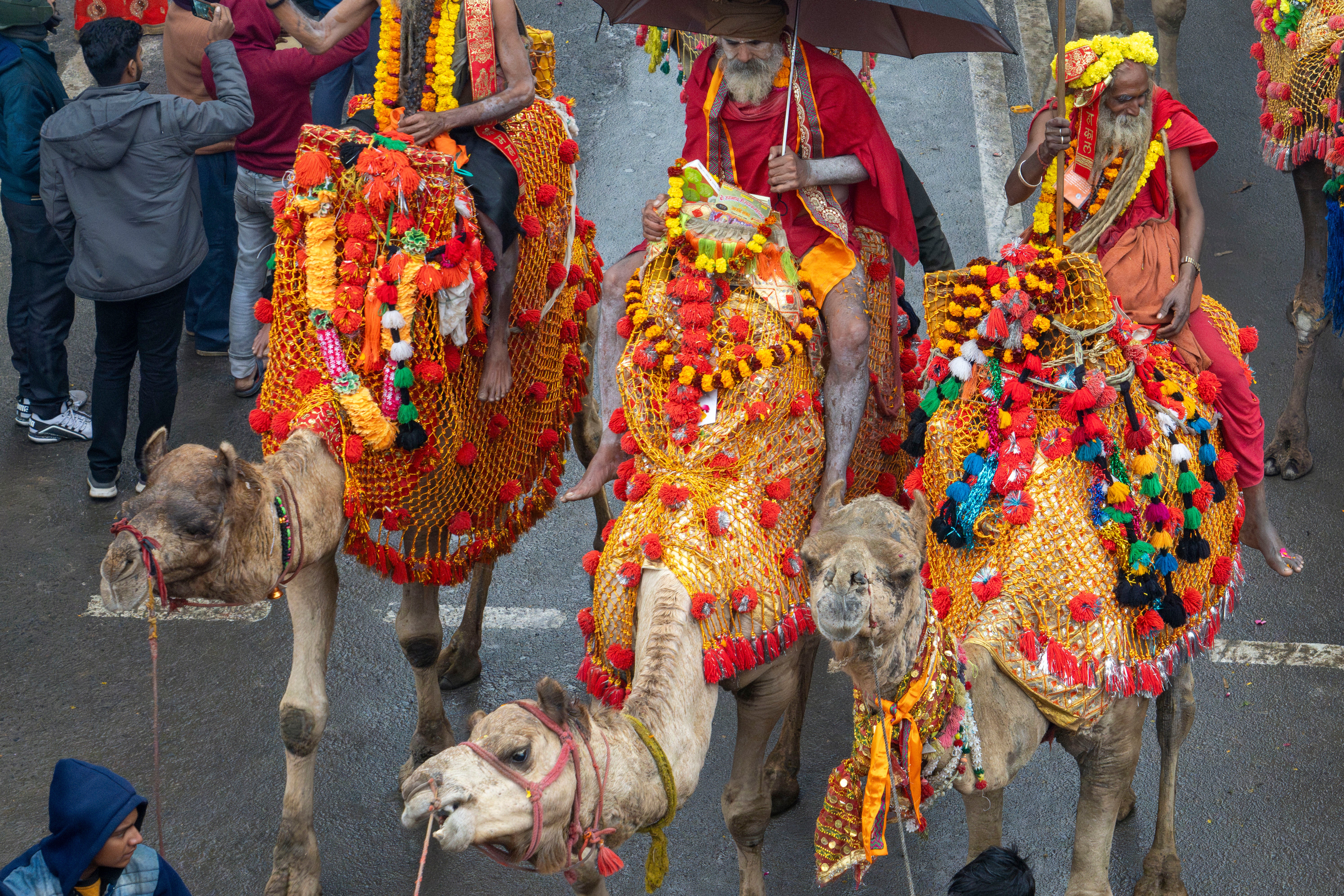
Hindu devotees believe taking a dip in the confluence of the rivers during the Maha Kumbh Mela absolves them of sins and brings them salvation from the cycle of life and death.
"It is our festival," said ascetic Hazari Lala Mishra, who immersed himself before sunrise, which is considered an auspicious time. "(It is) the only festival for hermits and monks, and we wait for it desperately."
There are references to the festival in ancient Hindu texts as well as in works of travellers visiting the city from other kingdoms. The 7th-century Buddhist Chinese traveller Hiuen Tsang mentions the bathing rituals at the junction of the rivers when he visited Prayag city in AD644.
Authorities expect Monday’s first ritual dip to draw more than 2.5 million visitors, followed by a “royal bath” on Tuesday reserved for ascetics.
Laurene Powell Jobs, wife of late Apple co-founder Steve Jobs, is expected to take a dip in the water during the festival.
Authorities have created a new tent city to house visitors that spans 4,000 hectares of land along the banks of the rivers.
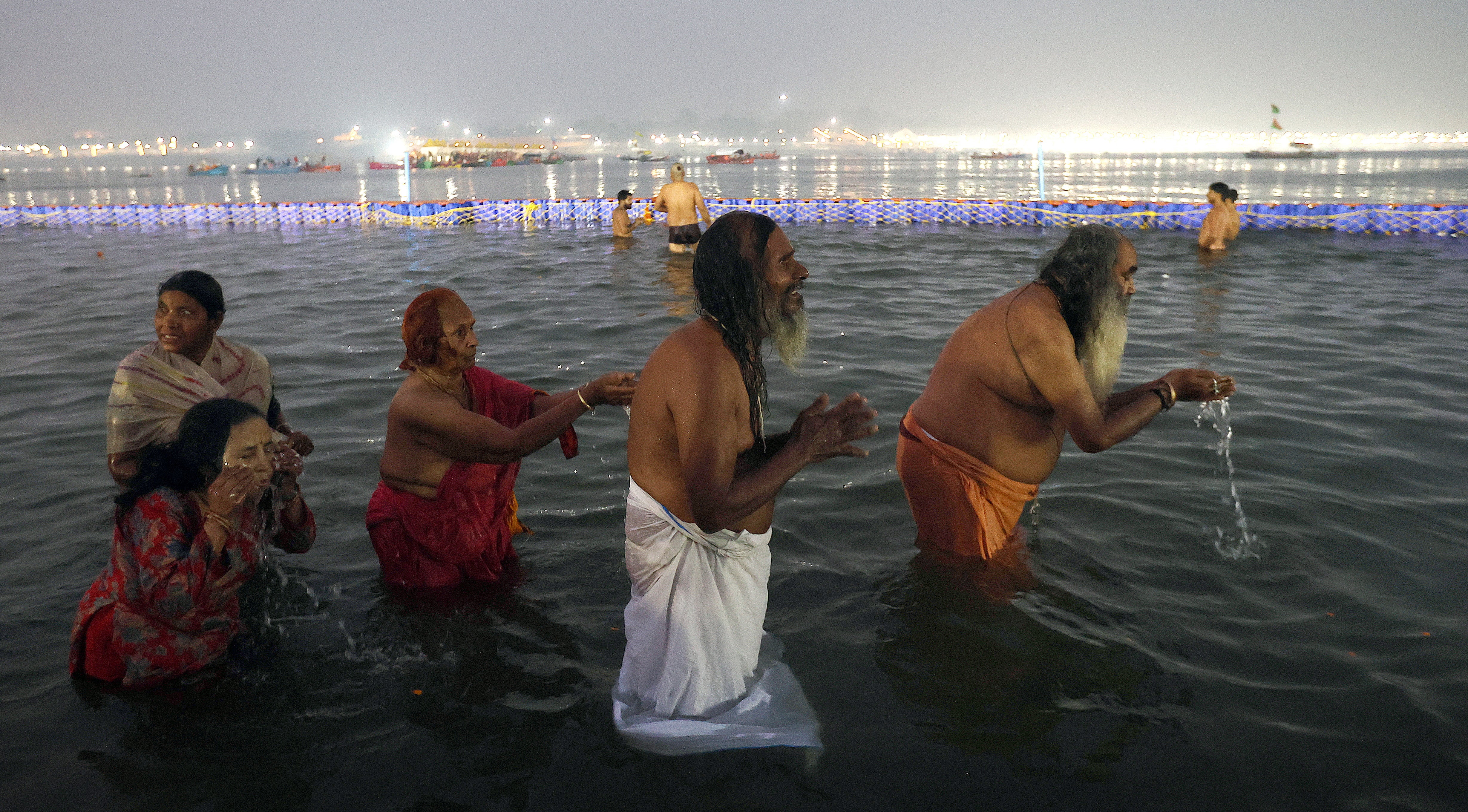
More than 150,000 tents have been set up on this land, equipped with 3,000 kitchens, 145,000 restrooms and about 100 car parks. Hundreds of thousands of new electricity connections have also been laid as the festival is expected to drain more power than what is consumed in a month by 100,000 urban apartments in the region.
Nearly 100 special trains have also been added to schedules, set to make 3,300 trips during the festival to transport visitors.
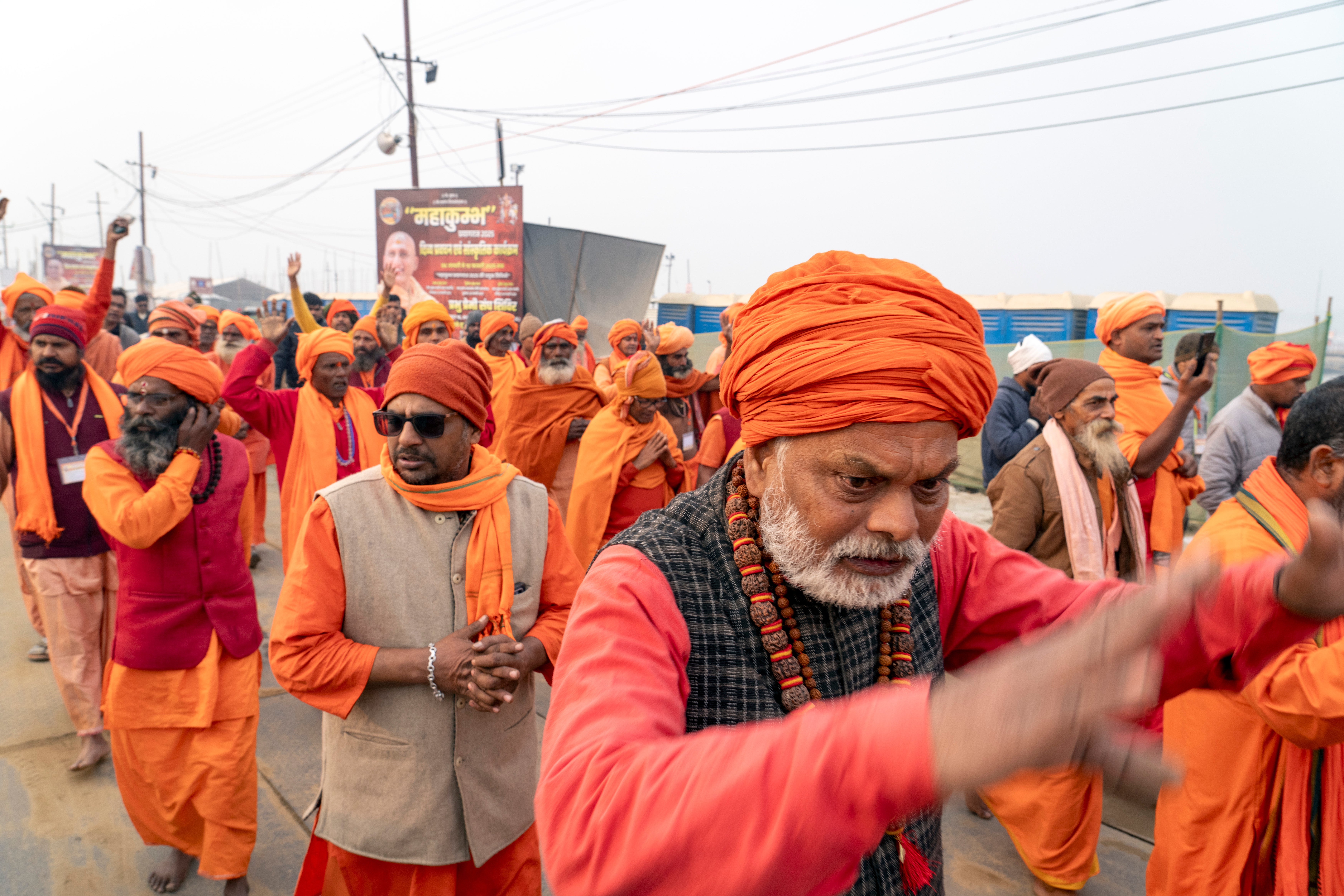
“I am excited but now scared because I didn’t expect this crowd,” said Priyanka Rajput, a fashion model from Delhi, told Reuters. “This is my first Kumbh and I came here only because my mother is very spiritual.”
State police have also dispatched more than 40,000 personnel, as well as drones and cybercrime experts using artificial intelligence to surveil people. Underwater drones capable of diving up to 100m have been deployed to provide round-the-clock surveillance, the state’s culture minister said.
With so many people attending, the festival represents a significant test for authorities to organise and manage the movement of millions. Stampedes are not uncommon at the festival, and 26 pilgrims were killed in one at the last Maha Kumbh Mela in 2013.
More than a hundred road ambulances, seven river ambulances and air ambulances are also reportedly being readied as part of emergency response capabilities.
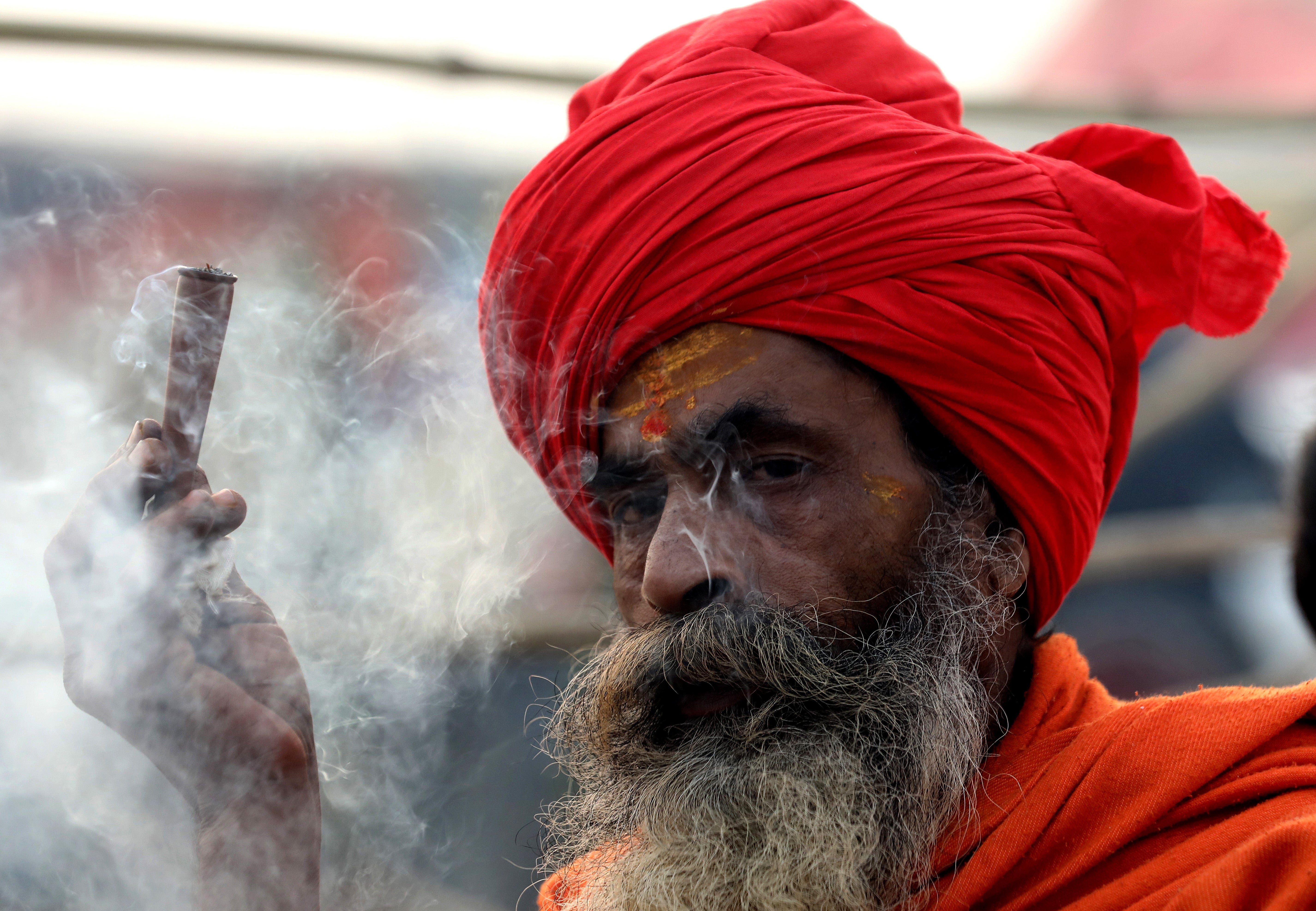
Officials say about $765m (Rs 64 bn) has been allocated by the state government to conduct this year’s event. “Security and safety of pilgrims is our priority,” UP police chief Prashant Kumar said.
Hindus from across India and the world travel to the Maha Kumbh every 12 years not just to partake in festival rituals, but also to see the thousands of saffron-clad saints and hermits and to take a dip themselves in the rivers at near-freezing temperatures.
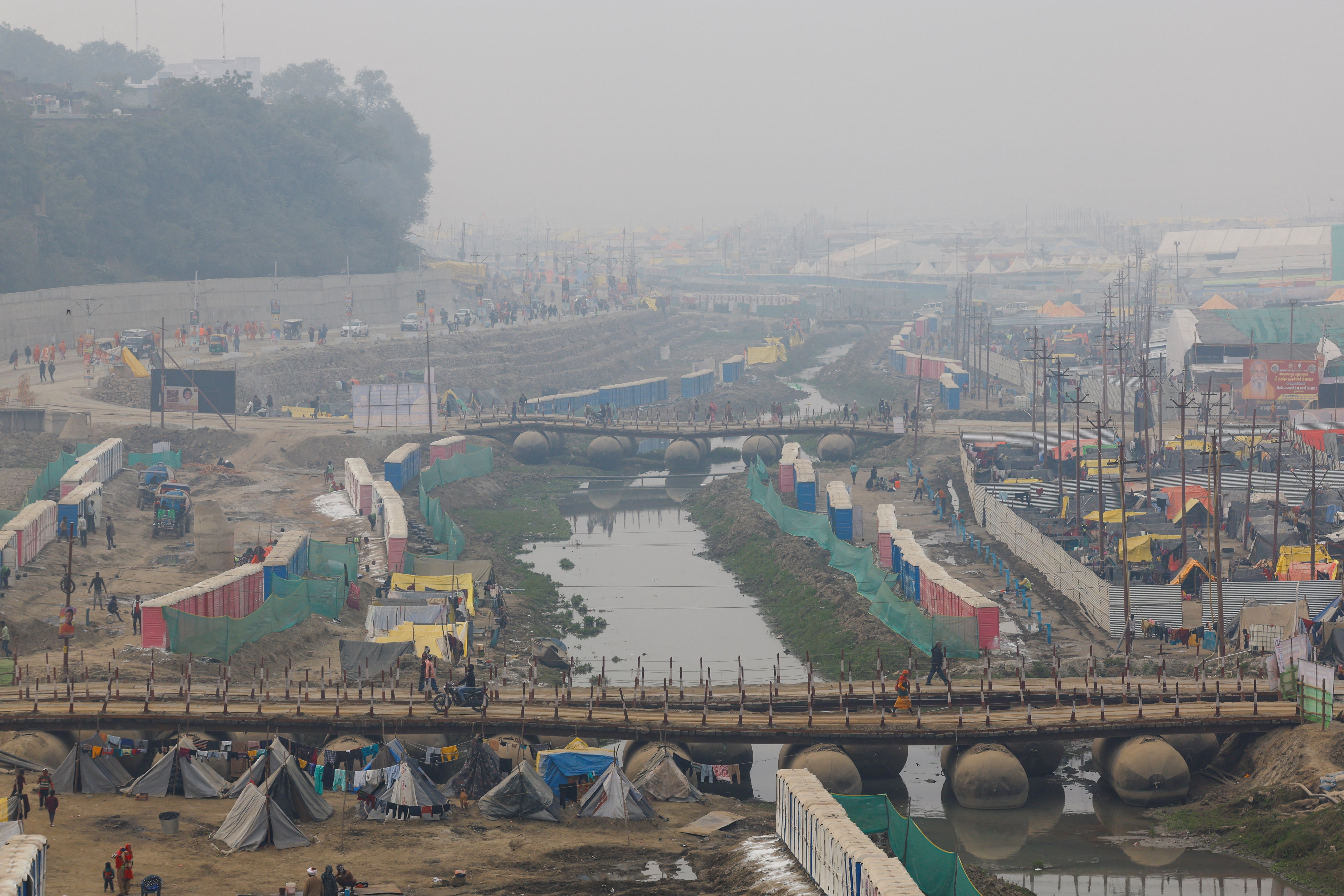
Successfully conducting the festival would be seen as a shot in the arm for the ruling Hindu nationalist BJP government at both the state and the national level.
The state’s chief minister Yogi Adityanath is a hardline Hindu monk who told reporters that he was “fortunate to host one of the most auspicious Hindu festivals” in his state.
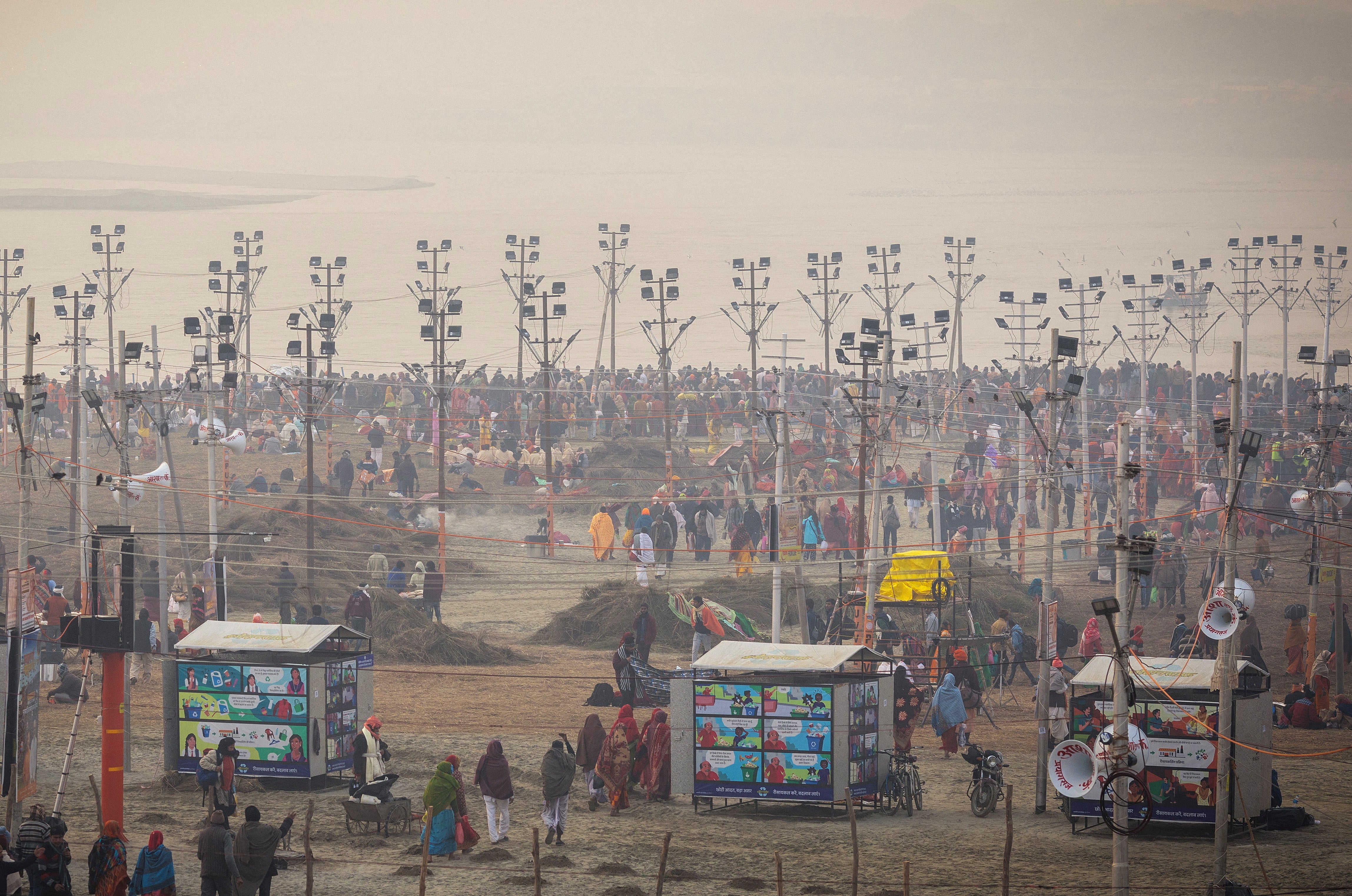
In 2021, prime minister Narendra Modi’s government refused to call off the Kumbh Mela even as Covid-19 infections rose to record levels across the country and millions gathered in Uttar Pradesh without masks or social distancing.
The decision to conduct the festival despite widespread fears and criticism of the gathering turning into a super-spreader event was seen by critics as a move to appease religious leaders in the Hindu-majority country.







